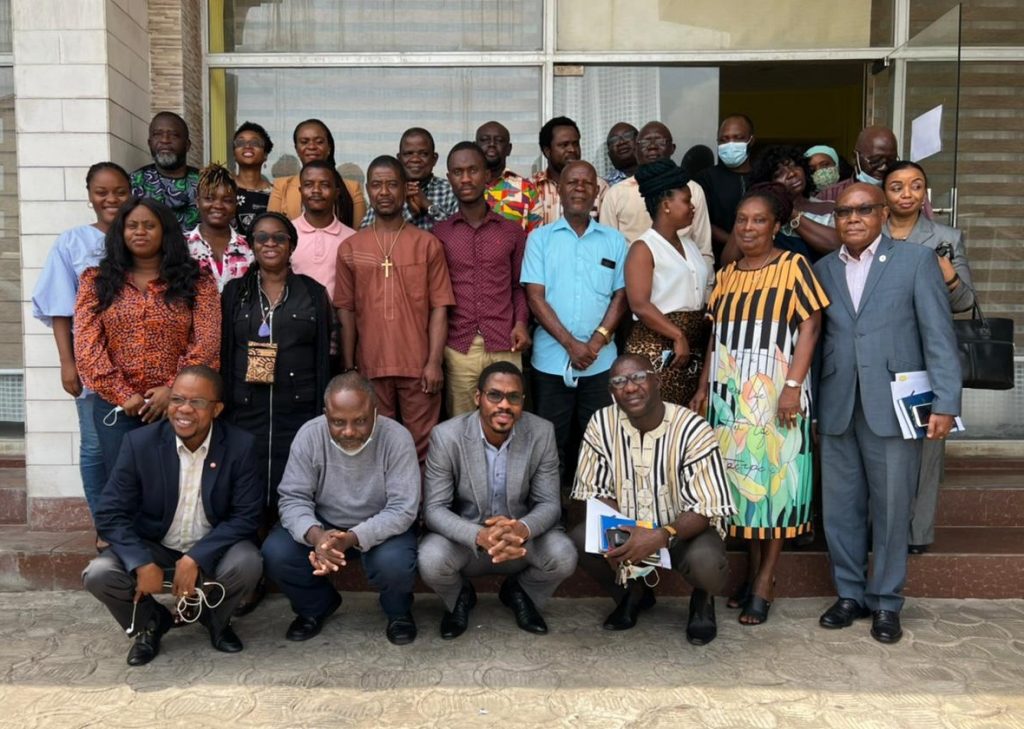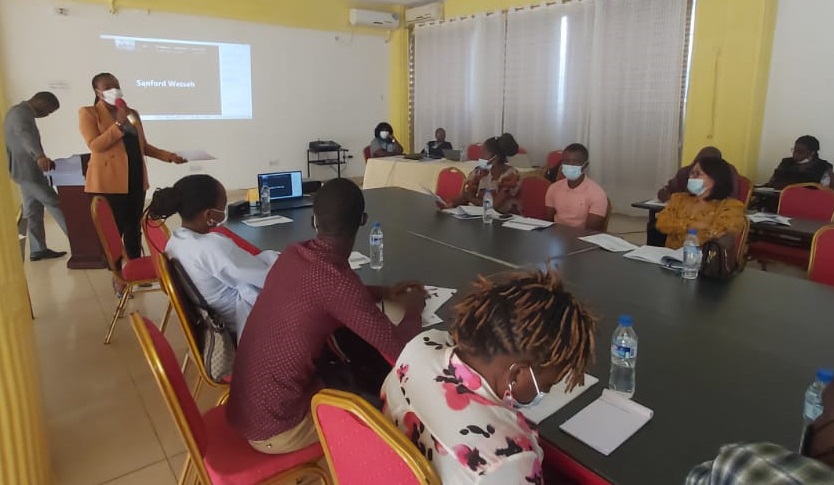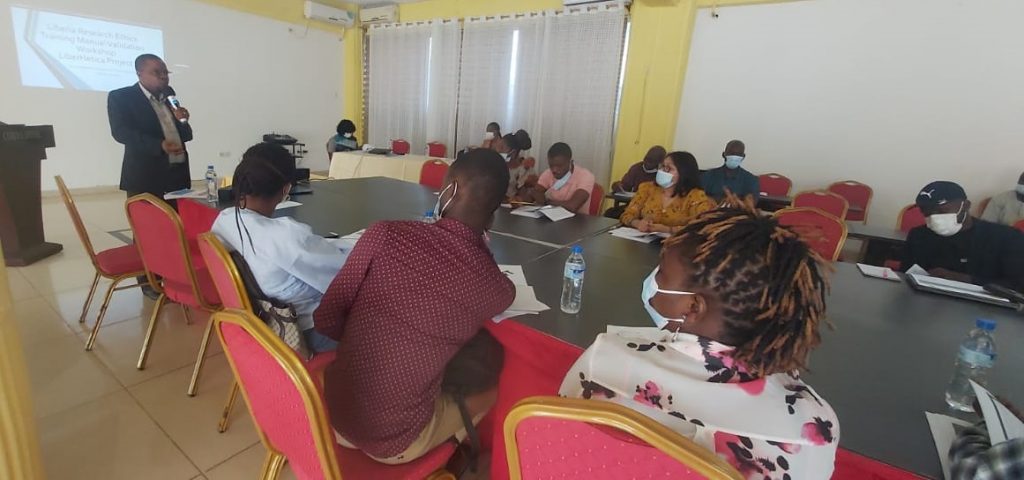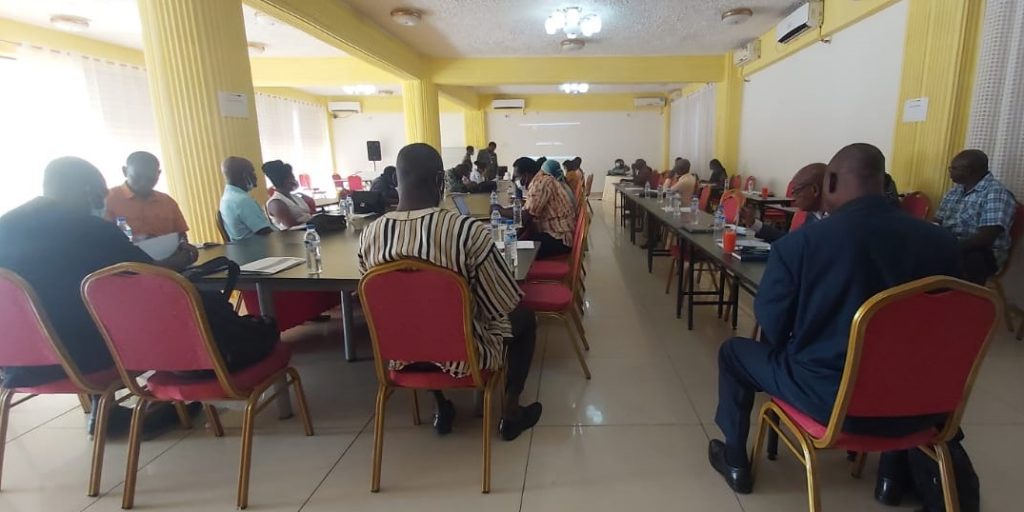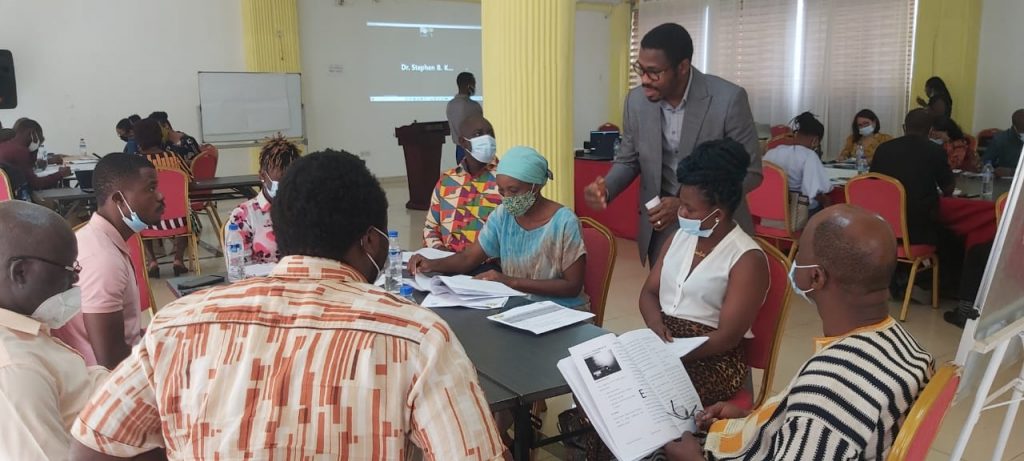The National Research Ethics Board (NREB), The University of Liberia- Pacific Institute for Research and Evaluation Institutional Review Board (UL-PIRE IRB), The R-Evolution Worldwide (R-Evo WW), based in United Kingdom, in partnership with the European and Developing Countries Clinical Trials Partnership (EDCTP) under the LiberHetica Project, have been involved in strengthening capacity building in Research Ethics and Institutional Review Boards (IRBs) in the review of clinical and social science research protocols in Liberia.
One of the critical gaps in in research ethics education was the require tools and manual needed to conduct such training for university students and research.
In this direction, the LiberHetica project had developed a National Training Manual for Research Ethics Education which was validated on February 10, 2022 by stakeholders at the Corina Hotel (Monrovia -LIBERIA) that included the Ministry of Health, the University of Liberia, AME University, United Methodist University, Stella Maris Polytechnic University, Carter Center, Africabio, UMU, Starz University, and the National Public Health Institute of Liberia. This Manuel will be the very first curriculum developed for research ethics education in Liberia.
Research produces new information that can improve health, services, and products. Review and monitoring of research studies in Liberia can be challenging because of limited human, financial, logistics and material resources. However, it is rewarding to ensure that humans participating in all forms of research are protected, and researchers are trained in research ethics and human participants’ protection. For this reason, the UL-PIRE IRB and NREB have produced this training manual, under the LiberHetica project, for research ethics in Liberia, in the context also in the context of Research Ethics Education Dissemination rollout plan for Emergencies preparedness during disease outbreak for the management of Ethical Issues.
The NREB as the advisory institution responsibly to regulate all research ethics activities in Liberia, has embark on institution capacity strengthening in research ethics to create an awareness within our community as a first line when striving to protect the participation of people that are enrolled in research studies. Research studies could include student thesis that involve humans, national census, demographic and health survey, etc.
The NREB wants to create these awareness and strengthen research ethics at universities and institutions in Liberia that conduct studies on human subjects. Before we can do this, we need to assess the capacities of these institutions through capacity and institution strengthening through dissemination.
